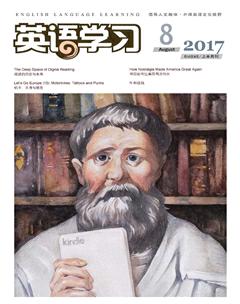中华文化术语选篇
“中华思想文化术语”,是浓缩了中华哲学思想、人文精神、价值观念等的以词或短语形式固化的概念和文化核心词。它们是中华民族几千年来对自然与社会进行探索和理性思索的成果,积淀着中华民族最深沉的历史智慧。本文选登“中华文化术语”诠释和英文翻译,使中国人更加理解中国古代哲学思想,也使世界更加了解中华思想文化。
良 知
Liangzhi (Conscience)
人天生所具有的道德本性与道德上的认识和实践能力。“良知”一词最初由孟子提出,认为人不加思虑便能知道的便是“良知”。“良知”的具体内容包括亲爱其父母、尊敬其兄长。而亲爱父母是仁,尊敬兄长是义。“良知”说是孟子性善论的重要内容。明代的王守仁提出“致良知”,进一步发展了孟子的“良知”说。他认为,“良知”就是天理,一切事物及其规律都包含在“良知”之中。将“良知”扩充到底,即能达到对一切道德真理的认识和实践。
Humans are born with innate conscience and the ability to know and act upon it. The term liangzhi (良知) was first used by Mencius, who believed that what man knew by instinct was liangzhi (knowledge of goodness). The term includes ren (仁), i.e. love for ones parents and yi (义), i.e. respect for ones elder brothers. The concept is an important component of Mencius belief in the innate goodness of human nature. The Ming-dynasty philosopher Wang Shouren raised the idea of “attaining liangzhi.” He extended the Mencius liangzhi to mean the principles of heaven, maintaining that all things under heaven and their laws were covered by liangzhi. With liangzhi being extended to its fullest (through self-cultivation and moral practice), it is possible to know and put in practice all moral truths.
引例 Citations:
◎所不虑而知者,良知也。(《孟子·尽心上》)
(人所不加思虑便能知晓的,就是良知。)
What is known without thinking is the innate knowledge of goodness. (Mencius)
◎天理即是良知。(《传习录》卷下)
(天理就是良知。)
Principles of heaven and conscience are the same in essence. (Records of Great Learning)
文 明
Wenming (Civilization)
指社会文治教化彰明昌盛的状态。“文”指“人文”,指礼乐教化以及与此相关的有差等又有调和的社会秩序;“明”即光明、昌明、通达之义。中华民族崇文而不尚武,自古便将文治教化的彰明昌盛作为自己的最高理想和追求,并以此作为评判异国他域政治是否清明的最重要标准。
This term refers to a thriving, prosperous, and perceptibly refined society in which people behave in a cultured fashion. Wen (文) refers to the arts and humanities, including social norms, music education, moral cultivation, and a social order that is hierarchical(等级森严的)yet harmonious. Ming (明) means bright, prosperous, and highly civilized. The Chinese nation has always preferred wen to wu (武 force). This is the loftiest ideal pursued by the Chinese nation since ancient times. It was also the criterion by which to judge whether the governance of a nation was well conducted.
引例 Citation:
◎文明之世,銷锋铸镝。(焦赣《易林·节之颐》)
(文明时代,销毁兵器,停止战争。)
In a civilized society weapons are destroyed and war ceases. (Jiao Gong: Annotations on The Book of Changes)

